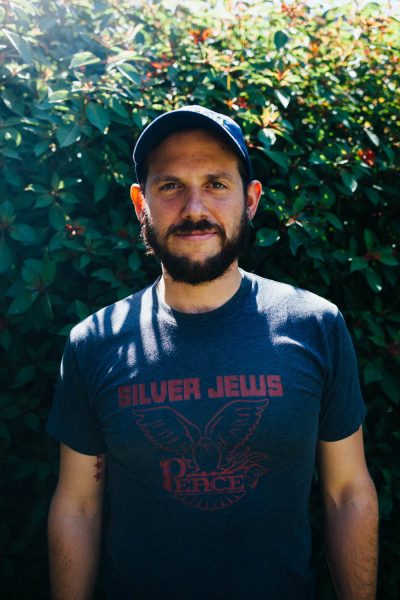I really appreciate how much of your story is revealed through your handling of the first-person point of view, the subtle significance of both what is directly acknowledged by the narrator and what is left unsaid. Regarding the former, the main character seems unusually preoccupied with the physical appearances of the other characters, from the son’s tattoos to the “sunburnt young man with a pillow of sandy hair” to the “green-haired woman with gold flecked cheeks.” At the same time, when the father touches his son’s tattoos at the mortuary, he seems to not find what he is looking for. In your view, what does this indicate about the main character’s personality?
I worked on a few different drafts of this story, but there were two constants: the first line, said by a parent about his child, and the setting, one of these little crossroad towns on the border of Colorado and New Mexico. I used to live in Denver and made that drive south on the way to visit family in Texas many times, and each time I was struck by the colorful and sometimes desperate characters I’d run into along the way. I think that setting and those characters are fitting to explore the themes of longing and connection—or disconnection. I experimented a lot with the narrator and eventually landed on this joyless, judgmental guy who is in the slow and painful process of falling apart. He’s concerned with physical traits because I think he operates on this surface level, with this selfish worldview. This selfishness keeps him from connecting with those he loves, and the shame associated with his inability to be there for his son brings him right to the bottom.
Conversely, despite this being an opportunity for the father to engage in self-reflection, he largely avoids documenting the obviously extensive backstory behind the estrangement from his son and his son’s mother. Even when past events are brought up, he consistently omits potentially important information, insisting he “can’t remember what was said” the last time he saw his son and did not hear what the barista at the Safeway said to him. Do you see this as simply an extension of the shock over his son’s death, or is this indicative of the problems that drove the characters apart?
He’s definitely working through some stuff, but I actually think the narrator remembers everything. I imagine he likely replays those implied scenes every day on repeat, just wallowing in his failures as a husband and father. To me, shame is his defining characteristic, which clouds everything he does. But by the end there’s a glimpse of him doing something for somebody else, however imperfect or misguided.
I find it very compelling that the father seemingly needs the young man he encounters in the Safeway lot to remember having noticed the son’s van when it was still parked there, surrounding the day of his death, while simultaneously acknowledging his son’s cause of death for “the first and only time.” Does the father immediately recognize something in this young man that reminds him of his son? Is the father unknowingly laying the foundation for what he does at the end of the story?
For me, the mini-arc of the narrator is moving from selfish to selfless actions. He doesn’t get all the way there, obviously, but there’s a little movement in that direction. He’s been pushing people away for a long time—those named in the story and you could imagine others in his orbit as well. Maybe he recognizes something of his son in the kid, maybe he’s looking for some kind of absolution from his past mistakes. Maybe he just wants somebody to talk to on the desolate drive back.
Finally, one of the more dramatic images arrives near the end of the story, when the father buckles the urn containing his son’s ashes into the backseat, alluding to an attempt to return his son to something of a childlike state. Beyond the act itself, this comes just before the father goes back to pick up the young man from the Safeway, suggesting the former is “making room” for the latter by not placing the urn in the front seat. In your view, how aware is the father of the motivation behind these actions?
I don’t think he’s super self-aware about anything, haha. I appreciate those interpretations. I don’t think of the narrator’s actions as particularly calculated, but certainly subconsciously there’s something going on. I think of him as unsentimental-but-shaken, kind of an asshole-but-trying by the end. Maybe by picking up this kid he’s trying to make up for the neglect that marked his relationship with his son in this very imperfect way. I also wanted to zero in on this element of dark humor that I think is inherent in the collection of remains. Like, my grandmother’s cat died a while ago and the vet told her she couldn’t have the remains for a few days because “they only fire up the furnace on Wednesdays.” I imagine this guy just wouldn’t know what to do with the urn.



 The core workshop of SmokeLong Fitness is all in writing, so you can take part from anywhere at anytime. We are excited about creating a supportive, consistent and structured environment for flash writers to work on their craft in a community. We are thrilled and proud to say that our workshop participants have won, placed, or been listed in every major flash competition. Community works.
The core workshop of SmokeLong Fitness is all in writing, so you can take part from anywhere at anytime. We are excited about creating a supportive, consistent and structured environment for flash writers to work on their craft in a community. We are thrilled and proud to say that our workshop participants have won, placed, or been listed in every major flash competition. Community works.